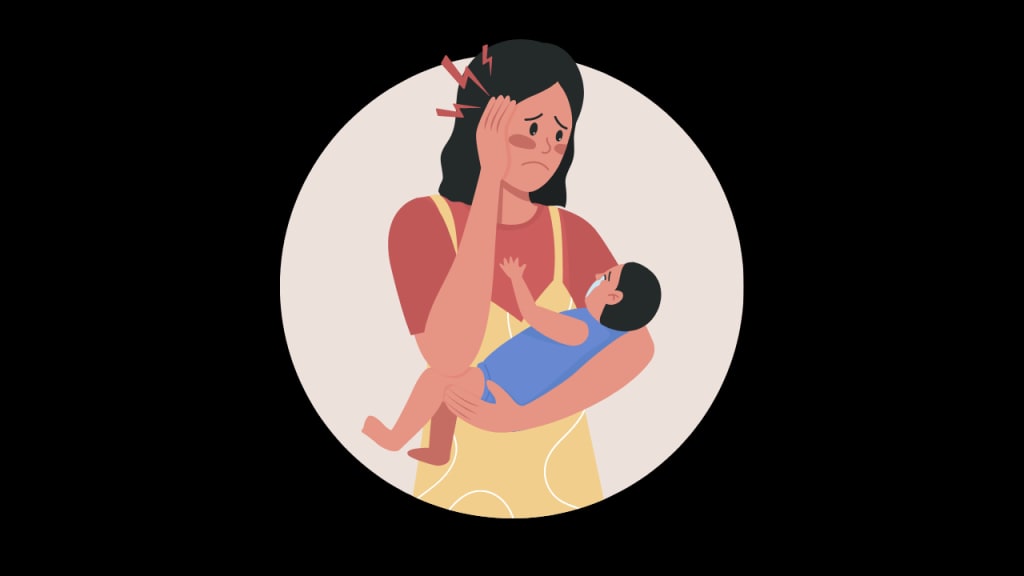10 Ways to Make Postpartum Recovery Easier (& Quicker)
One of the hardest parts of being a new mom is dealing with the postpartum recovery process. It can be physically and emotionally taxing; dealing with symptoms such as mood swings, fatigue, panic attacks, and insomnia.

When a woman gives birth, she experiences some pretty significant changes in her body. However, unlike any other muscle group, the uterus takes time to recover and heal after childbirth.
Postpartum recovery can be challenging for most women especially when they're busy juggling endless baby-related activities with their normal daily routine. Pushing through your postpartum recovery is tough on your body because you're often too exhausted to do what the doctor recommended and it might even get worse if you stop taking care of yourself. Here are 10 ways to make postpartum recovery easier (& quicker).
1) Get up and move around as soon as you feel up to it.
Lying down after childbirth can cause problems with circulation, especially if you've had a C-section or if you've been on bed rest. That's why doctors recommend that new mamas get up and move as soon as they feel up to it.
Walk around, drink plenty of water and sleep in other positions besides lying flat on your back (like side or stomach). Moving around helps blood circulation and prevents fluid buildup in the breasts and uterus.
2) Eat a balanced diet.
New mothers often crave bland, slimy foods because they're so hungry that they're not able to identify the right foods in the kitchen. Adding a lot of protein and healthy fats (like olive oil) to your diet will help you recover faster and discover if you're craving certain foods that aren't healthy for you.
That's why doctors recommend the "Maternity Diet" which is a special type of variant food plan known as "prenatal care," along with regular physical activity and eating nutritious meals throughout your pregnancy for good health even after pregnancy has ended.
3) Take Vitamin D supplements.
You're probably aware that Vitamin D is essential for good health, but most pregnant women aren't aware that those who can't get enough of it while they're pregnant risk complications during childbirth, as well as problems breastfeeding.
According to Dr. Francesco Branca, head of nutrition for the World Health Organization: "There is sufficient evidence that a daily intake of 10 micrograms of Vitamin D prevents most cases of rickets and some types of osteomalacia (bone softening disease), and thus should be recommended for all infants and taken into account in prenatal care."
4) Sleep on your stomach or side.
After childbirth you may wake up multiple times in the middle of the night, mostly because you're not accustomed to moving your body around while sleeping.
Although it's best to sleep on your side while pregnant, most new moms find it difficult to get comfortable lying on their sides because they're sore and tired.
If your doctor recommends that you sleep on your side if you have back pain or even for the sake of your unborn baby, try sleeping on your back with a pillow between your legs and a pillow under each arm.
5) Get some exercise.
Baby weight loss is about more than just dieting—it's about getting in shape again and focusing on getting healthy. The problem is that postpartum recovery doesn't give you enough time to lose all that weight—especially if you're breastfeeding.
One of the best ways to get back into shape is to start simple: take a walk around the neighborhood or do light exercises or yoga before bedtime. Of course, your doctor may also recommend specific exercises for women who plan on breastfeeding.
6) Eat healthy food with plenty of nutrients.
Postnatal dieting is another element of the "Maternity Care," which doctors recommend for all pregnant women, not simply those who plan on breastfeeding. The Maternity Diet includes many essential foods that must be consumed daily to prevent nutritional deficiencies, as well as regular physical activity for overall health.
However, if you're too busy to make nutritious food choices on a daily basis or if you're a new mother who's still recovering from childbirth and doesn't want to spend your time cooking, consider purchasing pre-made meals at a local grocery store.
7) Avoid alcohol and fast food in general during recovery.
Alcohol can suppress your immune system, which can be dangerous for a new mother. It can also cause uterine contractions that make it difficult to get comfortable after childbirth. Fast food contains salty and unhealthy ingredients that could harm your newborn's stomach and make you feel exhausted yourself. These foods are great when you're busy, but that's the problem, when you're trying to recover, it's best to avoid them.
8) Take care of yourself mentally and emotionally.
Whether you were given the option or not, many new mothers change their expectations of how they want to parent their children because life changes after childbirth. However, even the strongest mothers experience postpartum depression, anxiety and PTSD after childbirth.
While experts recommend exercise and diet changes to cope with these issues, not all doctors agree that these suggestions can actually help reduce symptoms. This is why it's important to talk about your expectations for yourself as a parent and consider getting professional help from a mental health professional if you feel overwhelmed or anxious.
9) Ask for help when you need it.
Learn to identify the habits that you should change and the ones that should be kept in your daily routine after giving birth. Whether that means getting out of bed and facing the world every day or lying down with a heating pad on a daily basis, make sure that you're comfortable with how you recover from childbirth. When in doubt, ask for help from your partner, friends or family during this time.
10) Be patient and take time to recover.
No matter how much you want to get back into the swing of things especially if you plan on breastfeeding or working, it takes time to recover after childbirth. There's no magic formula for losing baby weight or for getting back into shape after giving birth.
The physical and emotional changes that occur after childbirth can take time to adjust to, and it's important that you don't compare yourself to other women who have given birth many times before. It takes time to feel healthy again and it's perfectly normal if you don't go back to your old self immediately.
Conclusion
You can't control the pregnancy, and you can't control your body, but you can control how you behave and how you recover from childbirth. Have faith that the postpartum recovery process is a necessary step in healing and rebuilding yourself.
Be patient with yourself, be kind to yourself and be understanding of your body's new needs by eating right and exercising, even if it doesn't happen all in one day. Even though it will take some time to get back into shape after giving birth, being a new mother is worth every second of discomfort that comes along with it—because that's when your child is born.
About the Creator
BingBingMoney
Welcome to our blog... This is where we will find news, information, tips, tricks and advice on how to make your life better. We hope you enjoy our blog as much as we do.
Enjoyed the story? Support the Creator.
Subscribe for free to receive all their stories in your feed. You could also pledge your support or give them a one-off tip, letting them know you appreciate their work.






Comments
There are no comments for this story
Be the first to respond and start the conversation.